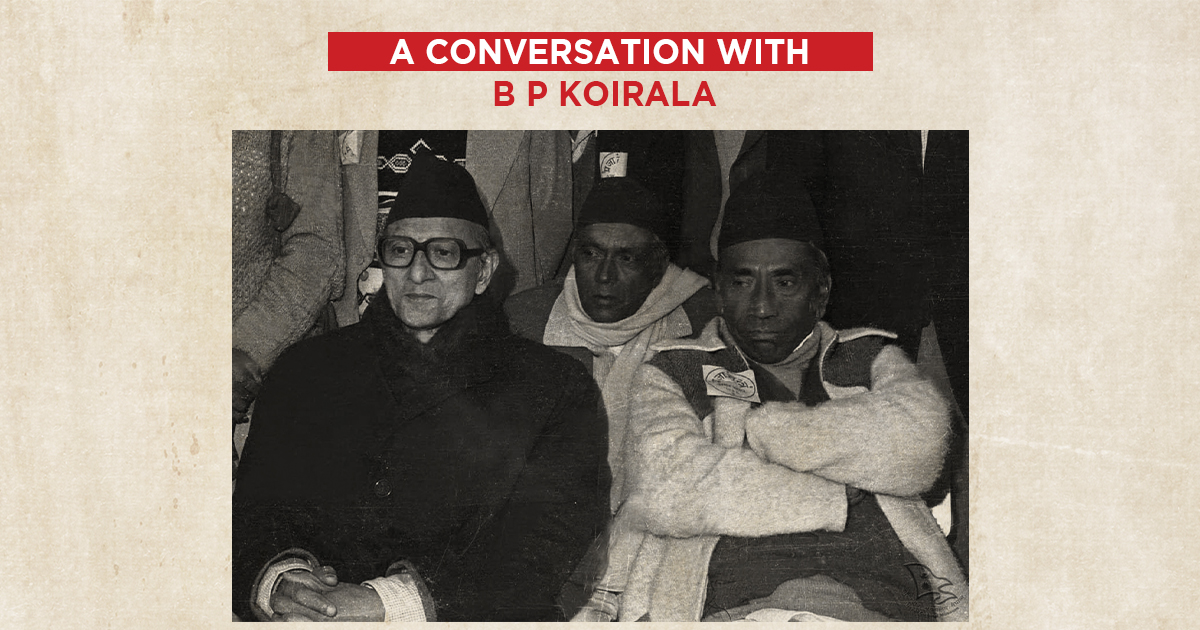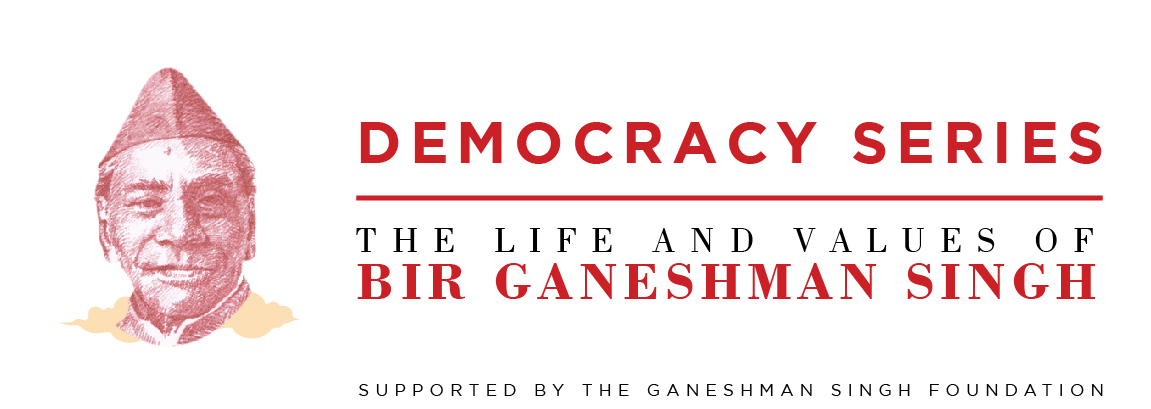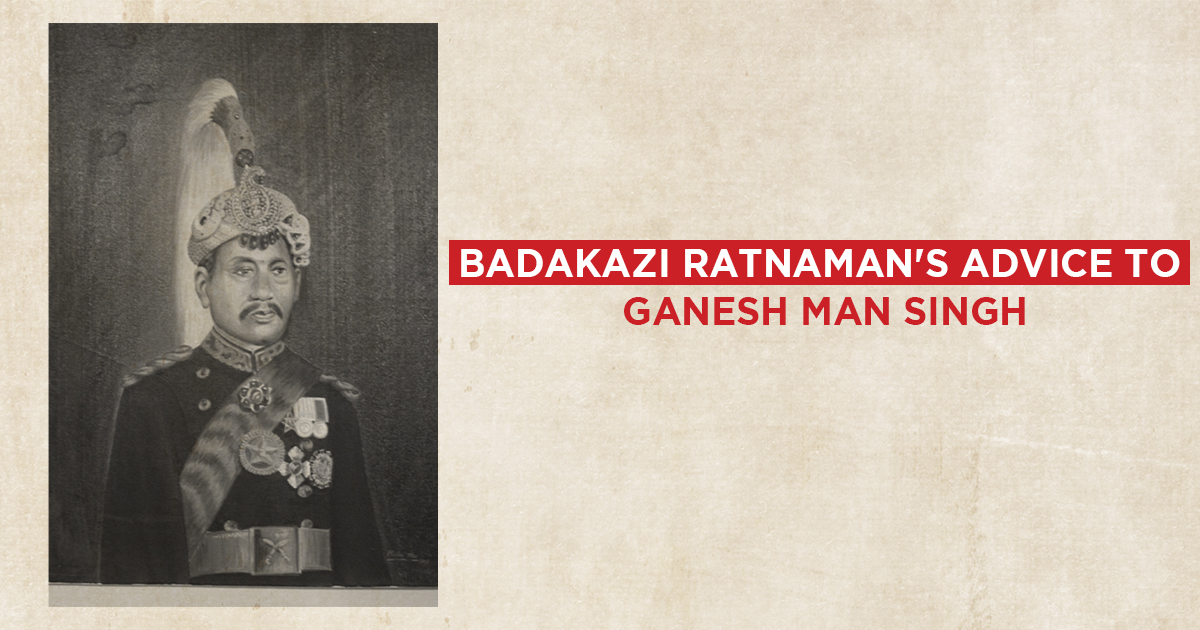Following the oath-taking ceremony of the newly formed cabinet, Ganesh Man Singh within the tranquility of the Narayanhiti Palace gardens had an opportunity to reflect upon the past, the present, and the future. He amused over the fact how he, a state prisoner just a few months ago, today had become a minister. Though he amused over the fact with himself – he also remembered what a painful journey it had been.
Nevertheless, he was content with the fact that Nepal had become a democratic country. Looking around the gardens, he could see several Rana figures, many who had been appointed ministers along with him, but he didn’t mind that fact very much.
“After all arriving upon democracy is a process, and the most important fact is that Nepalis can now choose who arrives into power”, Singh shared with Mathbar Singh his reflections of the day. “It is important to remember that our intention was not to end the Ranas, but to end the Rana regime, and to pave way for Nepal’s democracy”, Singh added.
“The establishment of a cabinet system and the introduction of a Council of Ministers was the first step of Nepal towards its path of democracy”.
Walking along the palace gardens, Singh also remembers feeling elated at being appointed a minister. “Six years ago, after escaping from Bhadragol Jail and breaking open the iron shackles, I had felt a sense of lightness previously inexperienced – a similar feeling engulfed me that day too”, Singh added.
Singh also accepted the feeling was further propounded by the weight of the role he had just assumed.
Conversation with B P Koirala:

The same questions that haunted Singh when he was first asked to become a minister revisited him:
“What am I going to do after becoming a minister? To attempt something I have no experience with will not only be cheating myself, but also the people”.
Singh had raised the same question with his party members when B P Koirala, during tripartite talks in New Delhi had recommended Ganesh Man Singh as a minister in the new cabinet.
This is the reassurance, the party friends had provided then:
“A ministerial position is not only a new experience for you, but for the entire cabinet. In fact, this whole exercise of democracy is new for Nepal. No one is a born leader or a politician, they strive for years to rightfully attain the position – you have rightfully done so Ganesh Man. You have to become a minister; else the people of Nepal will not trust the new government”.
The next day, Singh along with expressing his dissatisfaction about the Delhi agreement, had also discussed his recommendation for a ministerial position with B P Koirala.
Addressing his queries, B P Koirala agreed that he too wasn’t happy with the Delhi agreement. He also explained to Singh that “they did not have a choice then”. They either had to agree with the terms, or fight the Ranas without the support of the Indian government.
Discussing Singh’s rejection of the ministerial position, B P Koirala simply said:
“Without your support in the cabinet, how will I be able to run the government? We have received an opportunity to work together for the betterment of Nepal from Nepal itself. We need to make the best of the opportunity, and to do so, I need your support”.
Singh’s first ride on his ministerial vehicle:

Lost in his thoughts, Singh was suddenly jostled back after hearing the trumpets blare. Singh realized the day’s proceedings had come to an end – everyone rose for King Tribhuvan’s concluding words. Following a final salutation, the congregation began to disperse.
On their way out, a line of new vehicles, one for each minister was waiting for them. The vehicles arrived via the order of ministers being appointed. When Singh’s vehicle arrived in front of him, he sat in the back-seat. Immediately, a police officer offered a salute and sat in the front seat with him. A little taken aback, Singh asked the seated officer “who he was”.
“Your bodyguard Sir”, he replied.
Singh was slightly surprised. “The perks of being a minister”, he remarked with Mathbar Singh.
Singh directed the driver to head to Lalita Niwas, Subarna Shumsher’s residence. Party friends had decided to meet at Subarna Shumsher’s residence following the oath-taking ceremony to discuss policies and future directions.
En route, Singh enjoyed the view from Durbar Marg to Baluwatar via Gairidhara, while thinking to himself:
“I spent almost a decade escaping the police and other authorities. Today, I am being escorted by a police officer on a government owned vehicle”.
“Although there were three of us in the car, we drove in silence. For me everything was surreal – new clothes, new position, new car, new driver, and new bodyguard. It was such a new experience, that I forgot to exchange introductions with the driver and the bodyguard”, Singh shared with Mathbar Singh later.




